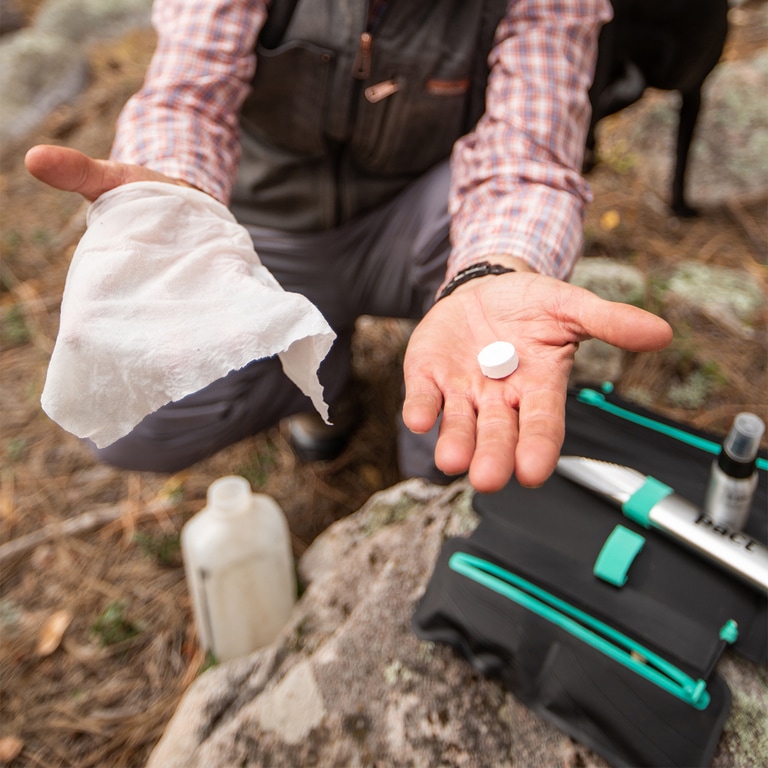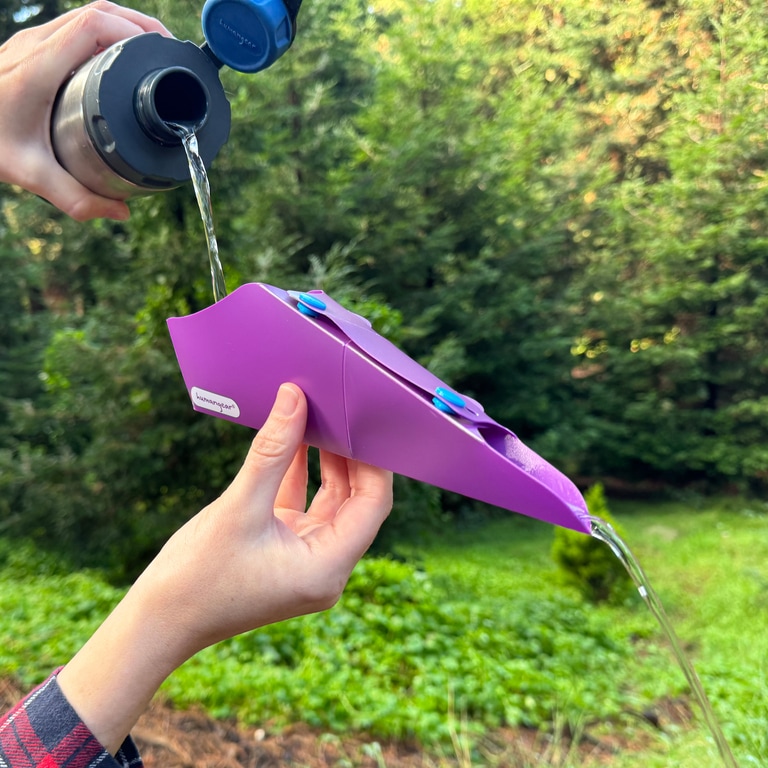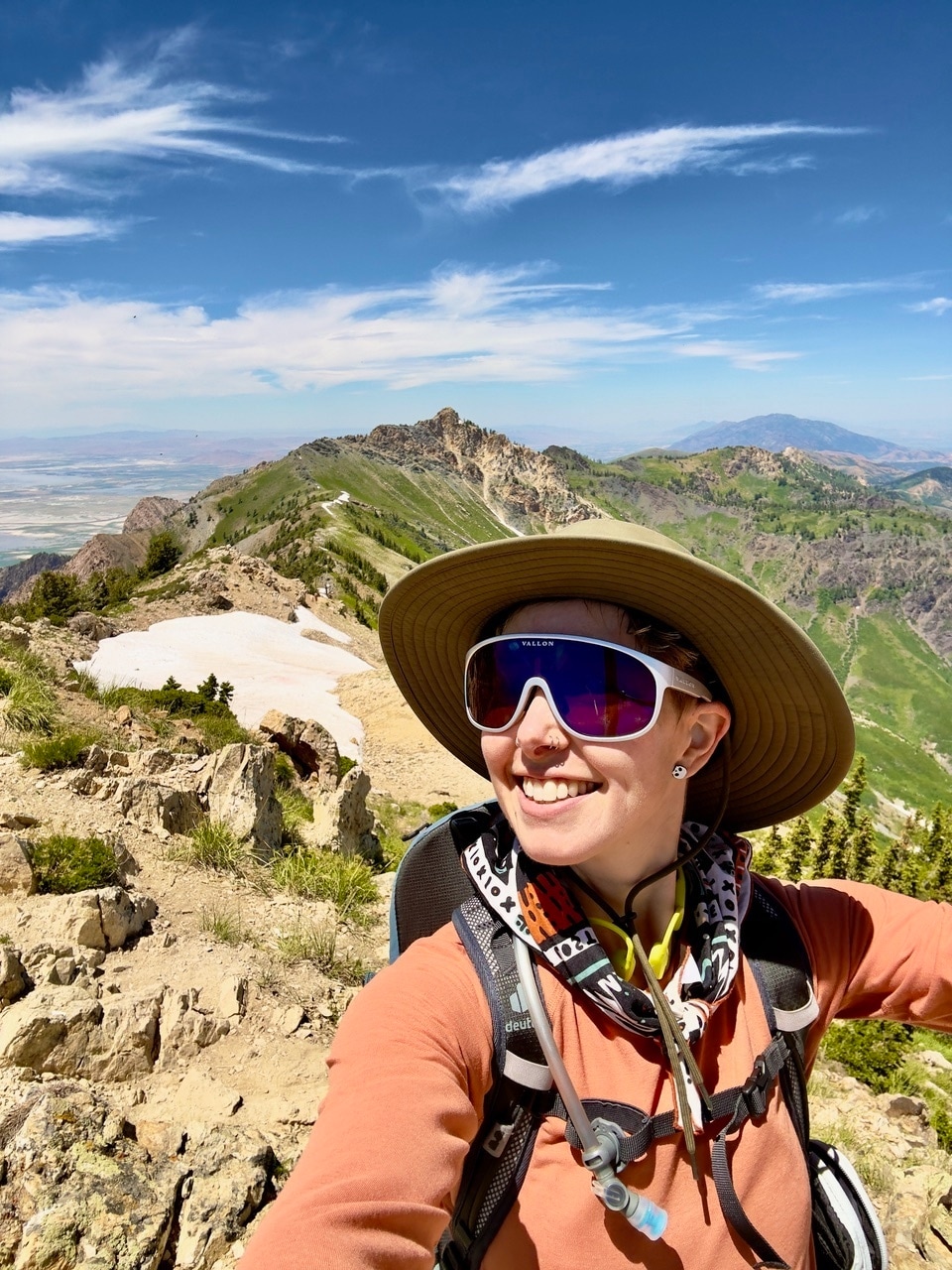We’ve all been there: deep in the backcountry and far from a trailhead toilet with a bladder nearly bursting. You quickly unshoulder your pack, dig around in the bag and realize with panic that you forgot toilet paper. Or something you can use to dig a cathole. Or hand sanitizer.
Forgetting hygiene essentials is not only frustrating, it can also make your outdoor experience less responsible and sustainable. Properly and safely relieving yourself and disposing of waste when enjoying time outside is an essential part of being a good steward of the outdoors (and one of the seven principles of Leave No Trace).
A well-stocked kit of backcountry bathroom essentials is the key to your sanitary success, so you won’t end up high and dry with your pants around your ankles. Here are REI Co-op staff’s outdoor bathroom essentials, along with tips and tricks for building your own kit so you’re prepared on every outing. Click the links below to go straight to a given recommendation or scroll on to read the article.
Backcountry Bathroom Essentials
- Trowel or spade
- Waste bags or WAG bags
- Reusable pee cloth
- Toilet paper or compressed wipes
- Soap and hand sanitizer
- Bidet
- Stand-to-pee device
- Strategic apparel
Bathroom Basics
Know where to go. Never relieve yourself in or near a small pond, stream or lake. Move 200 feet (about 70 steps) away from a water source, campsite or trail. In mountainous territory, peeing on a rock surface is recommended.
Choose the right surface. Decomposition happens faster under richer, loose soil and in the sun. If the ground is too hard or rocky to dig into or you’re in a river valley, pack out your waste.
Research disposal restrictions before you go. More land managers are prohibiting the use of toilet paper or the digging of catholes, so know ahead of time whether you need to pack out.
Bathroom Essentials
Leave No Trace reminder: Even biodegradable soaps and cleansers shouldn’t be used in a natural water source. To wash yourself, your laundry or your dishes, carry water 200 feet away from streams or lakes and use small amounts of biodegradable soap. Then pour wastewater into a cathole 6 to 8 inches deep.
Trowel or Spade
One item that should always be in your pack on extended day hikes and backpacking trips is a spade, a small lightweight shovel used for digging a cathole for toilet paper disposal or when you have to go number two. Find an area 200 feet (or about 70 steps) from a trail, campsite or water source and use the trowel to dig a hole 4 inches wide and 6 to 8 inches deep. (You can use a stick in a pinch.)
PACT Outdoors Shovel
Materials Aluminum/recycled PET plastic/elastic bungee
Dimensions 8 x 1.7 x 1 inches
Weight 1.3 ounces
Barrett Deisher, an REI store sales specialist in Boise, Idaho, recommends investing in the right tool. “For years now I've been using a Deuce of Spades trowel [from TheTentLab] for that purpose, but I'm switching to the PACT Outdoors Shovel,” whose tubular shape is a little easier on your hands when hacking away at tough ground. “It seems like it would be a better (see: more comfortable) tool for the job while still being in that ultralight weight range,” he says. Buy here.
If you’re trying to dig in frozen ground, James Randle, senior sales specialist at the REI in Bailey’s Crossroads, Virginia, recommends also bringing an MSRStake Hammer to knock the trowel with and make quick work of digging out hard soil. Buy here.
Waste Bags or WAG Bags
You won’t always be able to dig a hole and bury your waste. In some areas—like river valleys and the desert Southwest, for example—catholes either restricted, physically impossible or can contaminate the ecosystem. If this is the case where you're adventuring, pack a waste or WAG bag. WAG stands for Waste Alleviating Gel, which these receptacles contain: The gel solidifies and deodorizes human waste, somewhat similarly to how cat litter works. They are leakproof and sealable.
Simply go number two into the inner bag, press out the air and tie it tight, place that bag in the outer bag and seal that up. Then pack out the whole thing and toss it in the nearest trailhead garbage can. Many outdoor toilet bags or kits also contain wipes, hand sanitizer or other extras.

Cleanwaste The Original WAG BAG - GO Anywhere Toilet Kit Waste Bags - Package of 12
Dimensions 12 x 6 x 4 inches
Weight (12-pack) 3 pounds
REI Co-op Members, including the volunteer crews at Michigan’s Isle Royale National Park, praise the efficient and easy-to-use Cleanwaste Original WAG BAG - GO Anywhere Toilet Kit Waste Bags, which can be utilized on the ground, in a bucket or in a portable toilet like the GO Anywhere Portable Toilet Seat (sold separately). It comes with 12 kits, each of which contains waste alleviating gel; one waste bag; Poo Powder® gelling/deodorizing agent; a secure, puncture-resistant, zip-close disposal bag; toilet paper; and a hand wipe. Buy here.
Reusable Pee Cloth
Kula Cloth Reusable Antimicrobial Pee Cloth
Materials Polyester/bamboo viscose/organically grown cotton/cotton/Silvadur
Dimensions 5.75 x 5.5 inches
Weight 0.4 ounce
Rather than fuss with toilet paper, consider a reusable, antimicrobial pee cloth like those from member- and staff-favorite brand Kula Cloth. One REI Co-op Member sings her reusable pee cloth’s praises for its absorbent and stain-resistant antimicrobial silver ion–infused fabric and how easy it is to clean and reuse over a longer trip. “The Kula Cloth left me feeling cleaner and dryer than trail toilet paper. And I welcomed the cloth’s softness—if you’ve ever used cheap, 1-ply paper on a trek you know how luxe a gentle cloth would feel,” she wrote. A reusable pee cloth is handily dabs up liquid waste, dries quickly and eliminates trash. Buy here.

Toilet Paper or Compressed Wipes
You may not need toilet paper for every hike—some REI Co-op staff even endorse using found foliage—but it’s a good idea to keep some on hand, just in case. (Better to use paper than poison ivy.) You can purchase miniature rolls like Coghlan’s Toilet Paper, which comes with two 140 single-ply, biodegradable tissue rolled without a core to minimize bulk in your pack. Or simply take some paper off of your roll at home or from the nearest gas station bathroom. Remember to consult with the land management about whether you can bury or should pack out used paper. Buy here.
PACT Outdoors Bathroom Wipes - Package of 100
Materials 100% plant-based viscose
Dimensions 9 x 5 x 2 inches
Weight 8.1 ounces
Alternatively, pack a few ultralight, compressed PACT Bathroom Wipes from PACT Outdoors, which expand into a 9-inch wet wipe with just a few drops of water. These are a great option for helping you feel clean and refreshed, and can even be buried with PACT Tabs, which are made from non-invasive mycelium that help break down waste faster. One REI customer-reviewer in New Mexico doesn’t leave home without a set of the PACT wipes and tabs: “They’re much larger and sturdier than any other wipe I have tried even though they take up less volume and weigh much less (3 grams for one wipe and 3 tabs, so less than a half ounce for a six-day trip). … I use the wipes as a washcloth for ‘showering’ in the backcountry in the evening and then for their intended use in the morning.” Buy compressed wipes here. Buy wipes and tabs here.
If you plan to bring ready-to-use wet wipes like Wilderness Wipes from Sea to Summit, always pack them out; they don't decompose as quickly as you may think. Buy here.
Soap and Hand Sanitizer
Washing your hands after using the bathroom (whether indoors or outdoors) helps prevent the spread of germs that can quickly ruin a hike or a camping trip.
“I'm a true-blue devotee of soap-and-water handwashing in the backcountry,” says Heather Young, REI senior manager of product copy. Young always brings along a Nalgene water bottle, Wilderness Wash Soap and Nomadix Tiny Towel for the task.
Another ultralight option is packing the Clean Capsule soap flakes and compressed towels from Adventure Ready: This kit contains 10 grams of latherable water-soluble soap that makes quick work of killing germs. Buy here.
Bring along plenty of hand sanitizer like Dr. Bronner’s Organic Hand Sanitizer in case washing isn’t immediately possible, but keep in mind: Unlike thorough handwashing with soap and water, hand sanitizer won’t kill norovirus. Buy here.
Bidet
humangear BidetToob Portable Bidet
Materials Silicone/#5 polypropylene
Volume 6 fluid ounces
Dimensions 5.25 x 2.5 x 1.75 inches
Weight 3.8 ounces
While packing a bidet may be more of a personal preference than a necessity, many of those who have used one of the portable options available will no longer be caught on the trail without one. One REI customer-reviewer in Missouri says having a BidetToob portable bidet from humangear is a game changer and cuts down on TP: “My wife and I travel with our four kids often and a bidet is with us at all times.” Buy here.

Stand-to-Pee Device
Otherwise known as a urination funnel, stand-to-pee device (STP) or female urination device (FUD), these are designed to make standing to pee easier, whether you’re outdoors or in a less-than-immaculate trailhead drop toilet. There are many designs available, but most direct urine away from the body via a funnel-like structure. Before you take one on your next hike, practice using it at home, as there may be a learning curve. One note: While you don’t typically need to completely remove your pants to use them, most still require lowering the waistband on traditional zipper or button-fly pants.
humangear GoPee Stand-to-Pee Device
Materials Polypropylene
Dimensions 5.5 x 4 x 0.75 inches
Weight 1.4 ounces
One REI Co-op Member favorite is the lightweight GoPee Stand-to-Pee Device from humangear, which folds flat for packing and snaps easily into a funnel shape on the go. One customer-reviewer from California loves that the GoPee reduces the amount of skin that’s exposed to the cold because she doesn’t have to fully drop trou to use it. Storage is also a cinch: “The design is thoughtful, because you fold the front tip inward and then across, so any ‘wet spots’ are folded inside, then you put the device inside its bag,” she says. Buy here.
Strategic Apparel
Choose apparel that’s easier to go in, either because it's easy to remove, has wide or open bottoms like shorts or skirts that can be pulled aside, or includes special features like a zipper that extends all the way underneath the crotch. Outdoor brands like Gnara and Zip Hers (not sold at REI Co-op) make pants and leggings with a second fly designed for squatting. You might not even have to take off your backpack!
How to Build Your Outdoor Bathroom Kit
To make going outdoors easier, carry a comprehensive bathroom kit so you’re prepared every time you head out the door. You can either purchase a ready-made kit that includes everything you need or easily put together your own.
PACT Outdoors Outdoor Bathroom Kit
Materials TPU; aluminum; plastic; elastic; wood; mycelium; plant fibers; PEVA
Dimensions 10 x 4 x 2 inches
Weight 12.9 ounces (total weight); 9.9 ounces (weekend weight)
For preassembled setups, members rave about the Outdoor Bathroom Kit from PACT Outdoors. This compact kit folds up smaller than a 16-ounce Nalgene in its washable trifold carrying case and easily hangs from a carabiner off your pack. In it are 60 PACT Tabs, a resealable pouch with 20 PACT Wipes, a small trowel and hand sanitizer. While it might be too heavy for gram counters, one customer-reviewer in New York says it’s easy to set up and access for car camping, and doesn’t take up as much room as WAG bags when it’s all rolled up. “The wipes are huge, which was a good surprise,” they said. “I never needed more than one at a time, so they go a long way.” Buy here.
If you’re compiling your own kit, be sure to include a spade or trowel; enough WAG or waste bags to last your entire outing; toilet paper, compressed wipes or a reusable pee cloth; and soap. You may want to add in any other personal or preferred items as well, like a bidet, hand sanitizer or tampons.
Then locate a bag that’s big enough for your kit without being bulky or inconvenient. The abrasion-resistant and water-repellent REI Co-op Shower Roll is one option for car camping, though at 12 ounces when empty, it might be heavy to carry overland. Zippered pockets keep items separate and the bag hangs easily from a tree or hook. Buy here.
For smaller on-the-go kits or items that require dry storage, many adventurers opt for a reusable silicone bag or small waterproof stuff sack like the FlatPak Zippered Toiletry Case from Matador. The ultralight, leakproof CORDURA® nylon case still allows moisture to evaporate so wet toiletries can dry, and its flat-bottom design makes it easy to prop up next to you when you need it most. Buy here.
When your kit is ready, store in your backpack or another accessible place so you don’t forget it when you head out the door. When you return from your outing, immediately restock your kit with anything you used on the trail—like toilet paper—so it's ready to go next time. Likewise, remove anything that needs cleaning and return it to your kit once it's refreshed. You’ll never fear forgetting the essentials for a bathroom break in the woods again.

















![GoPee Stand-to-Pee Device [Carabiner not included]](/media/acc502d5-28c2-4e2f-aa19-6e9074ba33c6/?size=440)

![GoPee Stand-to-Pee Device [Carabiner not included]](/media/3177e484-2c73-4bc5-a71f-c7b04afca8bb/?size=440)





